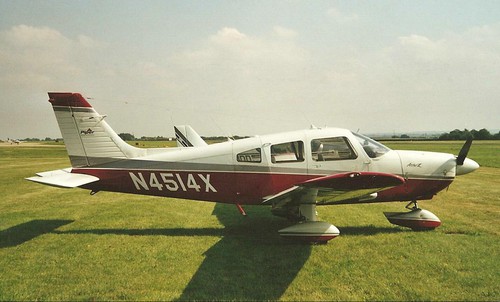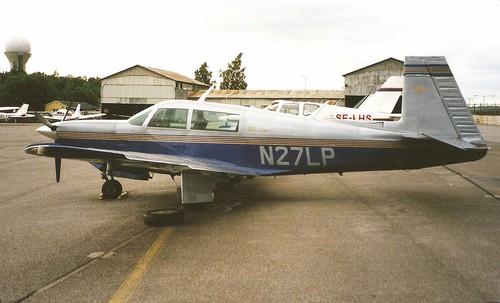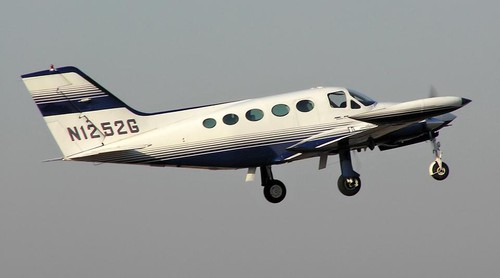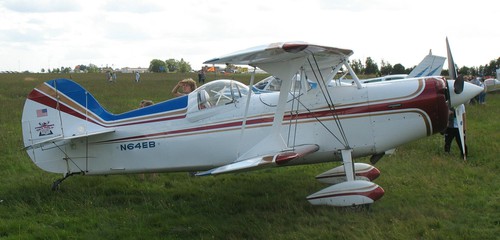In November we trust
Attention N-registrations!
FAA requires registration renewals
Owners of all N-registered aircraft in Europe must re-register their planes as part of an effort by the American FAA to clear the deadwood out of the system and make life more difficult for shady operators around the world. The FAA has 370,000 aircraft on its registry but believes up to 100,000 of them may be defunct for various reasons. All those who do not re-register will be cancelled.
Existing regulations require owners to report the sale, scrapping or destruction of an aircraft, or a change of address, but many owners have not complied with those requirements, according to the FAA. In future, aircraft will have to be re-registered every three years. Cost is variously pitched somewhere between $5 and $130 – AOPA in the US is concerned that this fee should not rise to become a revenue source.
The FAA has laid down a specific schedule for re-registration, and private owners should check with their Trusts to ensure they get their paperwork in on time. Re-registration can be accomplished online if there are no changes, but where data has changed they must be submitted by post. The process begins on November 1st and ends in December 2013.
Good trusts are already ahead of the game. Faith Al Egaily of Southern Aircraft Consultancy, the biggest N-reg trust in the UK, says: “The FAA are very keen to improve the accuracy of their records, partly in order to combat terrorism, money-laundering and drug smuggling. This is a laudable aim, although it’s unfortunate that it comes with fees and administrative costs.”
Source: IAOPA

Jag tror inte att det heller är omöjligt att amerikanska FAA (Federal Aviation Administration) även kommit under tryck från EASA (European Aviation Safety Agency)? Det är ju faktiskt så att det enskilt största landet vad det gäller registrerade flygplan inom general aviation (allmänflyg) i Europa är...USA! Låter som en paradox men har nu varit en känd - dock inte kanske så ofta uttalad - sanning sedan några år tillbaka.
För att hålla flygplanet på amerikanskt register måste det vara skrivet på en ägare som är medborgare i landet eller på en adress i USA. Flygplan som ägs och opereras av non US-citizens kan gå runt detta och köpa in sig i en trust, många gånger är dessa placerade i delstaten Delaware beroende på liberalare regler.
Två exempel är Aircraft Guaranty Holdings LLC (hemmahörande i Texas) och International Air Services, Inc (hemmahörande i UK). Läs mer om hur upplägget kan se ut på deras site'r och mer om för- och nackdelar här.

Även här i gamla Svedala blir detta fenomen allt mer noterbart. Jag uppskattar att det är opereras i runda längar mellan 20 och 30 flygplan och helikoptrar i landet på USA-register. Och trenden håller nog i sig, det kan bli fler.
Till exempel kan man ju nämna att tre rätt nya November-registrerade Mooney Ovation. Jag gissar att dessa fall i första läget berodde på att kärrorna var försedda med glascockpit och EASA:s krav på en separat installerad DME för att hålla dem IFR-godkända, även om denna funktion finns i databurkarna. Sedan har många faktiskt märkt att det är rätt smidigt att flyga på November-register, det är helt enkelt bekvämt och allt som oftast billigare i jämförelse.
Dessutom är det bra mycket lättare att vara en "smooth operator", man kan vara anonym i en högre utsträckning. Om man nu känner för det...

På den här sidan Atlanten har juridiken blivit viktigare än den tekniska aspekten inom luftfart. Det gäller inte minst i Sverige: Hur många jurister har man anställt på senare år på Luftfartsverket/Transportstyrelsen jämfört med teknisk personal? I USA är det juridiska systemet uppbyggt på eget ansvar, det genomsyrar även flygandet: "Fine, gör så eller så om du känner för't, men går det åt h-e så stämmer vi skjortan av dig", det är så det hela i princip fungerar.
I Sverige kan transportstyrelsens implementering av EASAs bestämmelser rätt ofta skjuta förbi målet. Ett talande exempel taget från IAOPA-Europe enews:
EASA’s first gift to general aviation, the Part M maintenance requirements, continue to cause chaos. Lars Hjelmberg of AOPA Sweden reports that aircraft owners are being required to produce documentation going back more than 20 years. “Any entry in the maintenance logbook must now be available with the original papers from the workshop – the invoice copy is not sufficient,” Lars says. “For my 1988 PA-28 I have had to present the original workshop papers from February 1989 showing how the heater in the engine compartment was installed, even if the log-book entry was 100% correct, reference was made to a Swedish STC, and the thing has worked perfectly for more than 20 years. I had to prove that the mechanic had used the correct parts and installed them correctly, regardless of the fact that the aircraft had had its airworthiness certificate renewed during all the intervening years by the CAA and that the aircraft been flight tested by CAA staff twice for airworthiness, with log book entries stamped by the CAA.”
Lars’s aircraft was held in maintenance for 45 days while all these boxes were ticked, but he is lucky because he has owned the aircraft from new and has kept all the papers. Those aircraft whose documents do not go back for decades are technically unairworthy. AOPA Sweden is questioning the legality of these requirements.
The Swedish CAA also now insists that all recommendations from type certificate holders must be treated as mandatory, introducing a whole new level of costly, bureaucratic and pointless work. For the PA-28, for instance, there is now a mandatory check of battery water every 30 days, lubrication of rubber door seals every 30 days, cleaning of fuel bowl every 30 days, change of engine oil every four months and much more, regardless of times flown.
Part M continues to be a costly and time-consuming distraction for the GA industry, and its imposition has provided zero safety benefit.
Att läsa, att tolka, att förstå - vad hände med det klimat för svensk luftfart som fanns på 80- och 90-talet? Delvis är förklaringen att den gått i pension. Men även med ett nytt regelverk hade man tidigare förstått vad som är applicerabart och vad som är inte-...
Som någon initierad/irriterad (välj det som passar) uttryckte det: "Transportstyrelsens kompetens är numera utbytt mot inkompetens, det är den nya förmågan som man satsar på." Fortsätter denna utveckling lär det också betyda att fler kommer stämma in i kören In November we trust...


